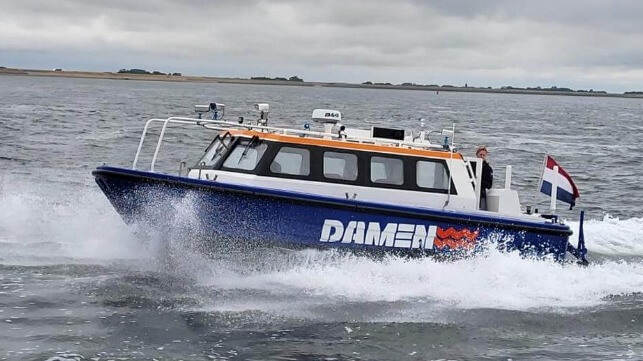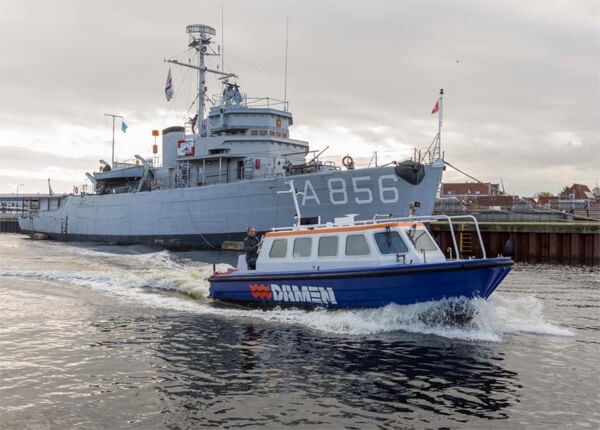Dutch Project Advances Autonomous Operations as it Targets Large Ships

A Dutch project contributing to the development of autonomous navigation continues to make progress. By 2023 it had developed critical data and demonstrated its concepts with a Damen patrol boat, and now the vessel is being upgraded for the next round of testing in the summer of 2025.
Known as the Fieldlab Autonomous Sailing Technology (F.A.S.T.) project, it is working with a Damen Stan Patrol 900 patrol boat at its core, as it works to lay the foundation for groundbreaking developments in autonomous ship technology. The boat is 8.6 meters (28 feet in length) and has an operating speed of 15 knots and a top speed of 21 knots.
The organizers highlight the ability to increase efficient, sustainable operations while increasing safety through autonomous operations. Critically they also point to the potential to help alleviate crew shortages.
Commenting on what makes the project unique, Eef Uittenbogaard, project manager at Alewijnse said,
“It’s the combination of innovation, close collaboration with the client, and the speed at which we adapt. This is truly a ‘fast’ project. As a company, we are contributing to progressive, rapid developments that will benefit not only the maritime industry but also the world.”
Alewijnse, a systems integrator that develops tailored electrical and automation solutions is one of the partners in the project. The project involves collaboration with Damen Naval, the Province of Zeeland, the Municipality of Vlissingen, the HZ University of Applied Sciences, TU Delft, and other companies. Together the companies report they will lay the groundwork for autonomous sailing using a remotely operated vessel at the testbed in the Port of Vlissingen.

During a prior phase of the testing (Alewijnse)
The main test bed is the Damen Stan Patrol 900, a 1990-built polycat. The test vessel is currently undergoing a transformation, with its two diesel engines being replaced with slightly more powerful electric motors. The boat will also be equipped with cameras, sensors, radar, Lidar, GPS, and wind and speed measurement instruments. These sensors will replace the traditional eyes and ears of a helmsman.
“As a co-creator, Alewijnse is excited to contribute to the electrical scope of the project,” said Uittenbogaard. “With our 135 years of expertise and experience, we can collaborate with Damen and provide the complete package, from engineering and panel construction to the efficient placement of electrical components for propulsion and energy supply.”
According to the companies participating in the project, it is just the beginning, with more ambitious programs designed to apply the technology to much larger ships to follow.
